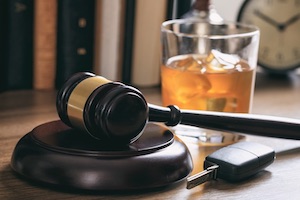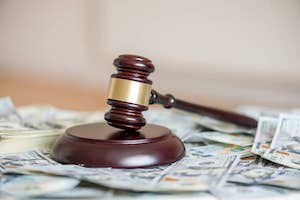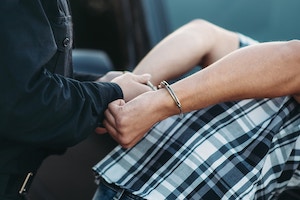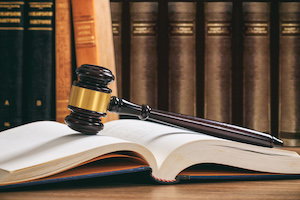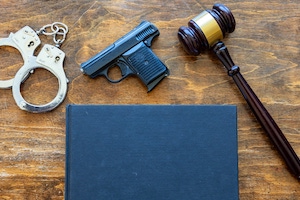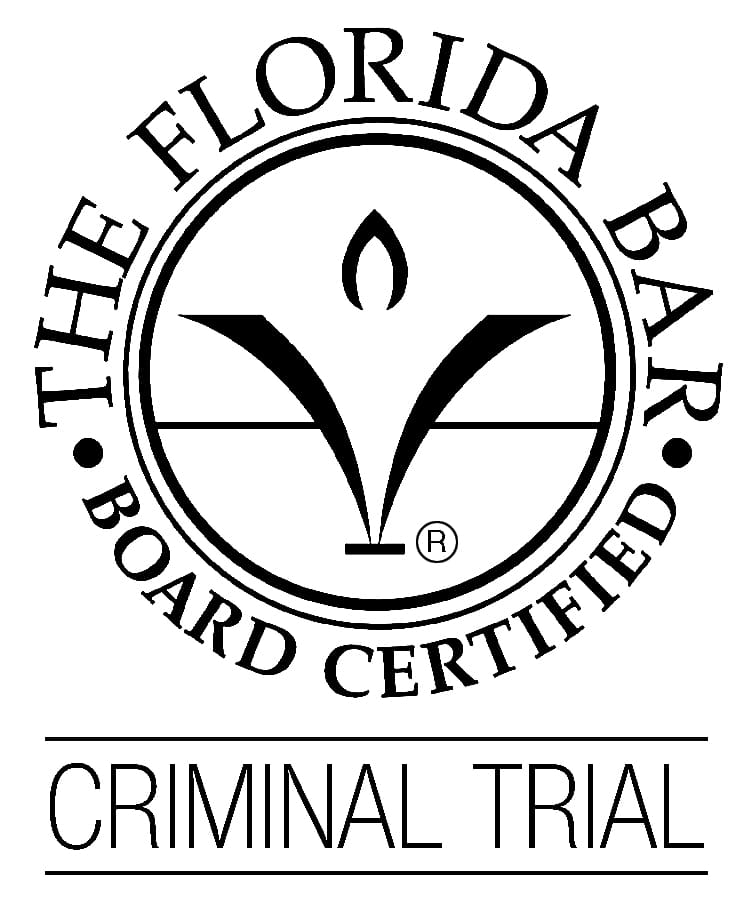Jacksonville Criminal Defense Lawyer
Lufrano Legal, P.A. is a criminal defense law firm in Jacksonville Florida owned and operated by Matthew Ian Lufrano. An attorney Board-Certified in Criminal Trial Law.Exceptional Criminal Defense Law Firm in Jacksonville, FL
There may be little in life as frightening and confusing as being arrested and prosecuted. In such an uncertain time, you need the help of an experienced criminal law attorney who is not only well-prepared to assist you but who also cares about you. You need Lufrano Legal, P.A.

24/7/365 Availability

Free Initial Consultation

Expert in Criminal Trial Law

Meet Matthew Lufrano:
Dedicated Criminal Defense Lawyer
Lufrano Legal, P.A., is a criminal defense law firm committed to defending clients facing criminal prosecution at the pre-trial, trial, and if needed the sentencing stages of the criminal process. Regardless of the circumstances of your case, Mr. Lufrano has the skill and experience to vigorously defend you. After all, Mr. Lufrano is an attorney certified by the Florida Bar as an experts in his respective practice area, namely Criminal Trial Law.
No matter whether my clients have been charged with a misdemeanor or felony offense, each client receives a comprehensive defense and my complete dedication. I work closely with our clients to ensure they understand every aspect of their case and develop a personalized strategy that will meet their unique needs. When you’re a client of Lufrano Legal, P.A., you will always know the status of your case at any given moment, have a voice in every decision, and know what to expect throughout the pretrial, trial, and post-trial stages of criminal prosecution.
Trust in Our Criminal Defense Experience
Matthew Lufrano has been practicing as a criminal defense lawyer for over a decade and has tried 75 jury trials to verdict. The cases Mr. Lufrano has tried range from homicide to theft, and have successfully argued appeals before the Florida Supreme Court. Here at Lufrano Legal, P.A., we offer our clients the highest possible quality of legal representation in the face of criminal arrests and the filing of formal criminal charges. Regardless of whether this is the first time you have been arrested or you have a criminal record, Lufrano Legal, P.A. can provide the expert counsel you need and determine your best course of action.
Whether you’re facing a felony, misdemeanor, or juvenile prosecution, you can always turn to Lufrano Legal, P.A., for help. The firm proudly represent clients from across Northeast Florida, including Duval, Clay, Nassau, St. Johns, Putnam, Baker, Bradford, and Alachua counties.
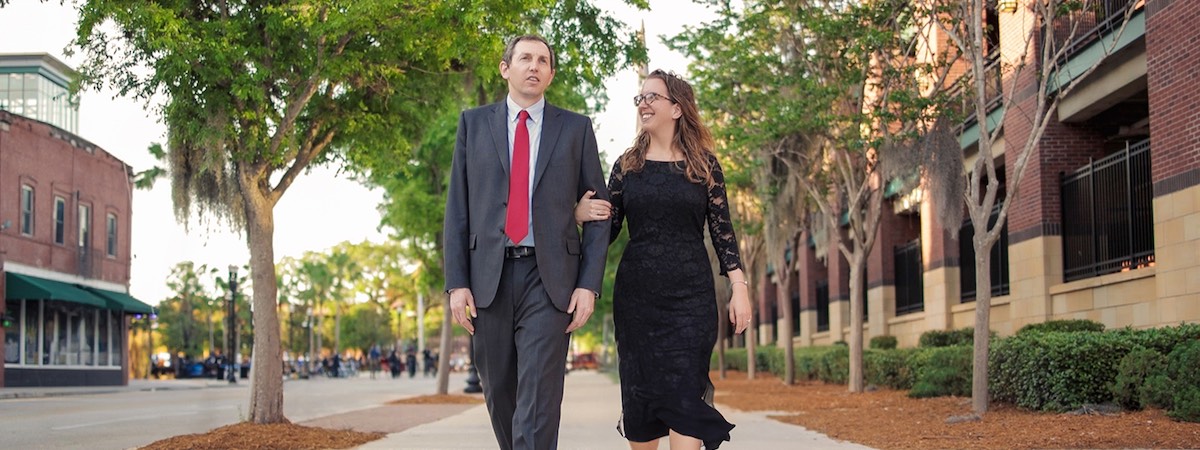
Lufrano Legal, P.A. Areas of Practice
At Lufrano Legal, P.A., we provide expert legal representation to our Jacksonville-area clients in these criminal defense practice areas and more:
Top Criminal Defense Attorney in Jacksonville
Available When You Need Us
Too often, clients are unable to reach their attorneys when they need them most. At Lufrano Legal, P.A., we don’t limit our clients’ access to our help by not being available outside of office hours—we are always available to every client and we will respond quickly when you need us or have questions about your case.
Because arrests can occur at any time, our office is open 24 hours a day, seven days a week. We offer free, no-obligation consultations, so don’t hesitate to contact us if you or a loved one has recently been arrested, sentenced, or served with an injunction.
Learn more about Lufrano Legal, P.A., and why you should choose us, then call us at 904-513-3905 for your criminal defense needs. We’re here around the clock, ready to help guide you through the criminal justice system and ensure your rights are protected.
Florida Bar Board-Certified Criminal Trial Attorney: Evaluated for Professionalism and Tested for Expertise
Our Recent Criminal Law Articles
The Pros and Cons of Representing Yourself in a Criminal Case
If you’ve been charged with a crime, you’re undoubtedly thinking about the...
The Role of Alibi Witnesses in Criminal Defense: Strategies and Challenges
An alibi defense can be a powerful tool in a criminal case. But presenting an...
DUI Sealing or Expungement: Is It Possible to Clear Your Record in Florida?
There are many reasons someone charged with or convicted of drunk driving in...
Our Defense Law Firm Location: Easy Access from Anywhere in Jacksonville
Our office, Lufrano Legal, P.A., is conveniently located at 1010 E Adams St, Suite 205, in the heart of downtown Jacksonville. We’re just a short walk from the Jacksonville Public Library and a few blocks from the Jacksonville Landing, a popular shopping and dining destination. With easy access from I-95 and major roadways, our office is centrally accessible from all areas of Jacksonville, including the Southside, Orange Park, and Jacksonville Beach.
Jacksonville Criminal Defense Lawyer Testimonials
Highly Recommend
⭐⭐⭐⭐⭐
“Called Matt this afternoon. He was able to respond to questions I had right away. Professional and being that he is very pleasant to speak with, took the edge off having to seek help. Thanks for everything you do! Highly recommend.”
Fantastic Trial Lawyer
⭐⭐⭐⭐⭐
“Mr. Lufrano is a fantastic trial lawyer. Today is the one year anniversary of my trial and Matt is the reason we are celebrating Acquittal Day from now on. I hope you don’t need him, but if you do waste no time!“
Impeccable Service
“Mr. Lufrano is my attorney from now on…..Impeccable service. I was given constant updates on my case via phone calls and emails. I was emailed copies of all motions filed on my behalf (e.g., waiver of appearance , and discovery).“
Jacksonville Criminal Defense FAQs
If you’ve been accused, arrested, or charged with a crime in Jacksonville, it’s important to learn as much as you can about how a criminal defense attorney can protect your rights and what to expect from the process. The following are some of the questions we hear most frequently from our clients, but if you have questions that are not answered here, please do not hesitate to call us at 904-513-3905.
How can a Jacksonville criminal attorney help me?
An experienced criminal defense attorney can guide you through the complicated legal system and help ensure your rights are fully protected. These are just a few of the actions a Jacksonville criminal defense lawyer may take on your behalf:
- Investigate the facts of your case and analyze the prosecutor’s case
- Gather evidence
- Gather statements from witnesses
- File a motion to suppress evidence and/or statements
- File a motion to dismiss charges
- Advise you regarding your rights
- Advise you regarding potential sentencing outcomes
- Secure expert witnesses if necessary
- Negotiate with prosecutors for outcomes such as reduced bail, charges or sentences
- Assert a defense at trial
At Lufrano Legal, P.A., we make sure that you understand every aspect of your case at each phase of the criminal process. One of our attorneys is always on call and available to speak with you any time of day or night, any day of the week.
What should I look for in a criminal lawyer near Jacksonville?
Your choice of a criminal defense attorney to represent you may be one of the most important decisions you can make. If you find yourself in need of legal representation for a felony, misdemeanor, or juvenile offense, take time to research the attorneys you are considering before you retain one. Ask these questions so that you can compare each attorney’s qualifications:
- How long have you practiced criminal law?
- Is criminal defense your firm’s main focus or a sideline?
- Have you handled cases similar to mine? If so, what were some of the outcomes?
- How often do your criminal law cases go to trial?
- Who will work on my case?
- How often will we communicate?
- Can I reach you whenever I need to?
- Do you charge an hourly rate or a flat rate?
- Will there be other expenses I will have to pay for?
What rights do I have when I have been arrested?
- The right to remain silent.
- The right to know the crimes with which you have been charged
- The right to have an attorney with you at every critical stage of the prosecution.
- The right to cross-examine the witnesses against you.
- The right to present witnesses on your own behalf.
- The right to access all of the evidence that the state intends to use against you.
- The right to a jury trial.
When and how should I invoke the right to remain silent?
The question as to when to invoke your right to remain silent is a straightforward one: the answer is virtually always. Many people think they can help themselves by cooperating with the police, but that’s rarely true. It’s generally best to politely decline to answer questions beyond basic identifying information. When invoking your right to remain silent, be clear and concise. For instance, you might say, “I am invoking my right to remain silent.”
What are the 6 steps in the Florida Criminal Court Process?
- A criminal case begins when you are arrested or summoned to court.
- After the initial arrest, a “first appearance” hearing is conducted, during which the court may grant bail.
- An arraignment hearing is scheduled following the first appearance.
- At the arraignment, you’ll hear the charges against you and enter a plea.
- After the arraignment, there is a period of non-court action, including evidence gathering and negotiation. Your criminal lawyer and the prosecution will either agree on a plea deal or begin preparing for trial.
- Then, you will either attend a hearing on the plea agreement or will proceed to trial with your criminal lawyer.
What is arraignment?
- Advising you of the charges against you.
- Advising you of the minimum and maximum penalties of the charges.
- Asking how you wish to plea.
- Setting dates for future proceedings.
At your arraignment hearing, you will be asked to enter a plea, which must be one of these formal responses:
- Not guilty, which means you are denying that you committed the crime with which you are being charged.
- Guilty, which is your admission that you committed the crime with which you are charged and that you are willing to accept the penalties imposed by the court.
- No contest (or nolo contendere), which means you are not denying or admitting that you committed the crime, but are asking that the court resolve the matter. A plea of no contest is often associated with plea agreements.
What is a plea agreement?
Can I see the evidence against me?
What are some common defenses to Florida criminal charges?
Of course, the possible defenses in your criminal case will depend on the charges against you, the facts of the case, and any procedural issues. Generally, though, a criminal defense falls into one of a few categories. One involves suppressing evidence (keeping it from being presented in court), which may weaken or destroy the prosecution’s case. Another is showing that the prosecution has failed to meet its burden of proof because they didn’t prove at least one element of the crime beyond a reasonable doubt. Finally, there are affirmative defenses, such as self-defense. Your criminal lawyer will explain the possible defenses in your case.
How should I handle criminal charges if I'm innocent?
Exactly as you would if you were guilty. The sad fact is that in the U.S. justice system, innocent people do get convicted. Most innocent people’s instinct is to try to explain themselves to the police, but that can often backfire. The best way to protect yourself from criminal charges, even if you’re innocent, is to remain silent and contact an experienced criminal lawyer right away.
What are the types of pleas in a criminal case?
The most common and straightforward pleas in a Florida criminal law case are guilty and not guilty. Most criminal defendants start with a not guilty plea, even if they plan to ultimately plead guilty–the not guilty plea allows their defense attorney the opportunity to negotiate for a favorable plea agreement. In some cases, there is a third option, a nolo contendere plea. That means “no contest,” and has the same effect as a guilty plea, but without an admission of guilt.
Can I represent myself in a criminal case?
For less severe charges, such as a minor traffic offense, you may be able to successfully navigate the legal process yourself. You will have a lot at stake, however, when you have been charged with a serious crime, including your freedom, your ability to earn a living, and much more.
If there is a possibility that you may serve time for your crime, we strongly recommend that you have legal representation. Keep in mind that even in the case of a less serious offense, a criminal law attorney will be able to advise you about consequences that may arise in the future, such as higher insurance rates or affects on a professional license.
If you are uncertain whether you can benefit from hiring a Jacksonville criminal law attorney, Lufrano Legal, P.A., offers free, no-obligation consultations.
Should I hire a Jacksonville criminal lawyer if I plan to plead guilty?
Yes! If you’re planning to plead guilty, you should first make sure that the state has a solid case against you. You probably won’t want to plead guilty if the case might be dismissed for lack of evidence. You’ll also want to hire an experienced local Jacksonville criminal attorney because they may be able to negotiate a favorable deal for you before you enter a plea, instead of rolling the dice on how the judge will sentence you.
How can a criminal attorney help me negotiate the right plea agreement?
A local criminal lawyer can help negotiate the right plea agreement by assessing your case for weaknesses that could reduce the sentence the prosecutor is willing to offer, or even reduce the charges you plead to. And, a knowledgeable advocate will make sure you have all of the information you need to make a good decision about a plea offer–the prosecution isn’t required to do so. The criminal law attorney will also know what type of evidence and argument is most likely to sway the prosecution.
What are some best practices for working with a criminal lawyer?
There are several best practices for working with a criminal lawyer. First and foremost, tell the truth. Your criminal lawyer can’t properly protect you if police and prosecutors know things they don’t. If there is information that could hurt your case, you want your lawyer prepared, not finding out about it in court. You will also want to keep in contact with your criminal attorney and follow their advice–including the advice not to discuss your case with other people.
How does sentencing work in a Florida criminal case?
Florida law caps the sentence for each classification of crime. For example, if the crime is a Misdemeanor of the First Degree, you can’t be sentenced to more than one year in jail. However, the actual sentencing determination is much more complex. Sentencing is based on a calculation set forth in the Florida Punishment Code. The Code includes a scoresheet that takes into account a variety of factors, including the nature of the crime, injury to victims, prior criminal convictions, and more. A criminal attorney can explain which factors will apply in your case and whether they will work in your favor or against you.
What are the grounds for appealing a criminal conviction in Florida?
In Florida, you can’t appeal a criminal conviction simply because you disagree with the result. Instead, you must have grounds based on something having gone wrong in the trial. For example, you might argue that evidence that might have changed the outcome was wrongly excluded from the trial, or that jury selection was biased, or that the judge improperly instructed the jury. Grounds for appeal can be quite technical, so the best source of information is an experienced criminal defense lawyer.
How much will it cost to hire a criminal lawyer?
There is no single answer to the question of cost as no two cases or criminal defense attorneys are the same. Variables include how complex a case may be and therefore how much work may be involved and what fee attorneys set for themselves. When you are considering hiring a criminal law lawyer, make sure you fully understand their fees and how much they require be paid up front, which may be most or even all of the total fee.
What are the effects of mental health and substance abuse in a criminal case?
In Florida, problem-solving courts are designed to offer an alternative to the standard conviction/punishment model. These include drug courts, designed to help people with substance abuse issues get back on track, and mental health courts to ensure that people who are struggling with mental health issues who commit crimes receive the right treatment and stick with the plan.
What is the difference between a misdemeanor and a felony?
In the State of Florida, a misdemeanor is any crime that is punishable by no more than one year in a county correctional facility. Examples of misdemeanors are possession of small amounts of marijuana, minor criminal mischief, and some DUIs. Felonies in the state are any crimes punishable by imprisonment in state prison, such as robbery, aggravated assault, and murder.
While the consequences of a misdemeanor are not as severe as those of a felony, it is still important to have expert criminal defense. A criminal law lawyer can ensure your rights are fully protected and guide you through every stage of the criminal process. You can learn more about our experience representing clients who have been charged with a crime by calling 904-513-3905. The firm of Lufrano Legal, P.A. is available 24 hours a day, seven days a week to take your call.
If I am cleared of the crime, will it still be on my record?
Unfortunately, yes, an arrest remains on a person’s record unless and until it is sealed or expunged. At Lufrano Legal, P.A., we can assist you in filing to have your record sealed or expunged if you qualify. This may prevent having your arrest being used against you in some circumstances.

